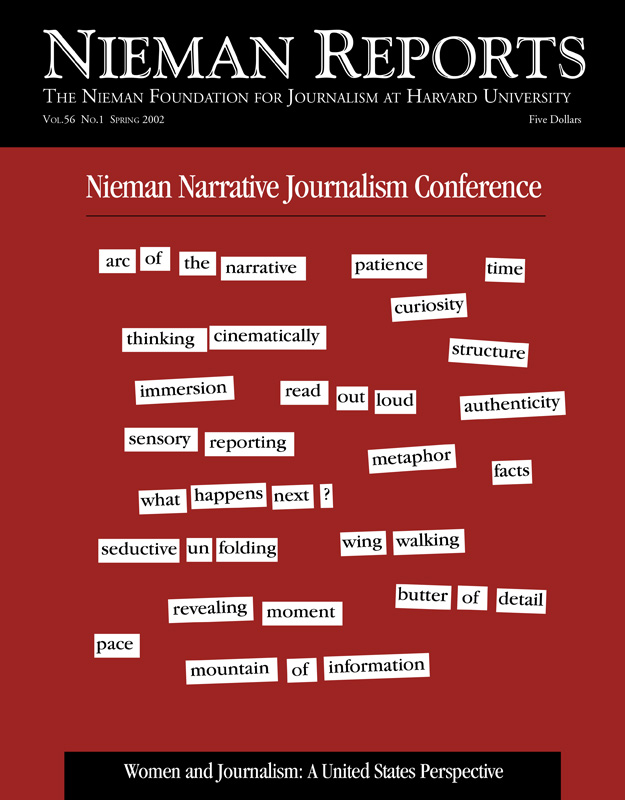Tom French’s talk was an argument for the power of the slowly unfolding story—the wait, the suspense (though I don’t think he ever used the word cliffhanger). For him, the world in general, and the newsroom in particular, are like his father—“Let’s get to the point. Cut to the chase. What’s the bottom line?” But the faster life gets, French said, the more powerful it is when a writer or director makes you wait to see what happens next. We all long for completion, he said, and a writer can use that longing to advantage.
He offered a couple of interesting reasons why this may be true: one is that slowly unfolding narrative is closer to the rhythms of real life. Another (which I hope I’m not overstating here) is that when readers consume a story in discrete chunks, their sleep and dreams—their subconscious, I guess—come into play so they process it in a deeper way.
French offered a number of tips to writers to master the techniques of storytelling. Here’s a partial list:
- Study the stories all around you.
- Find a simple frame for your story.
- Know your story’s engine.
- Gain altitude.
—Mike Lenehan, executive editor of the Chicago Reader



